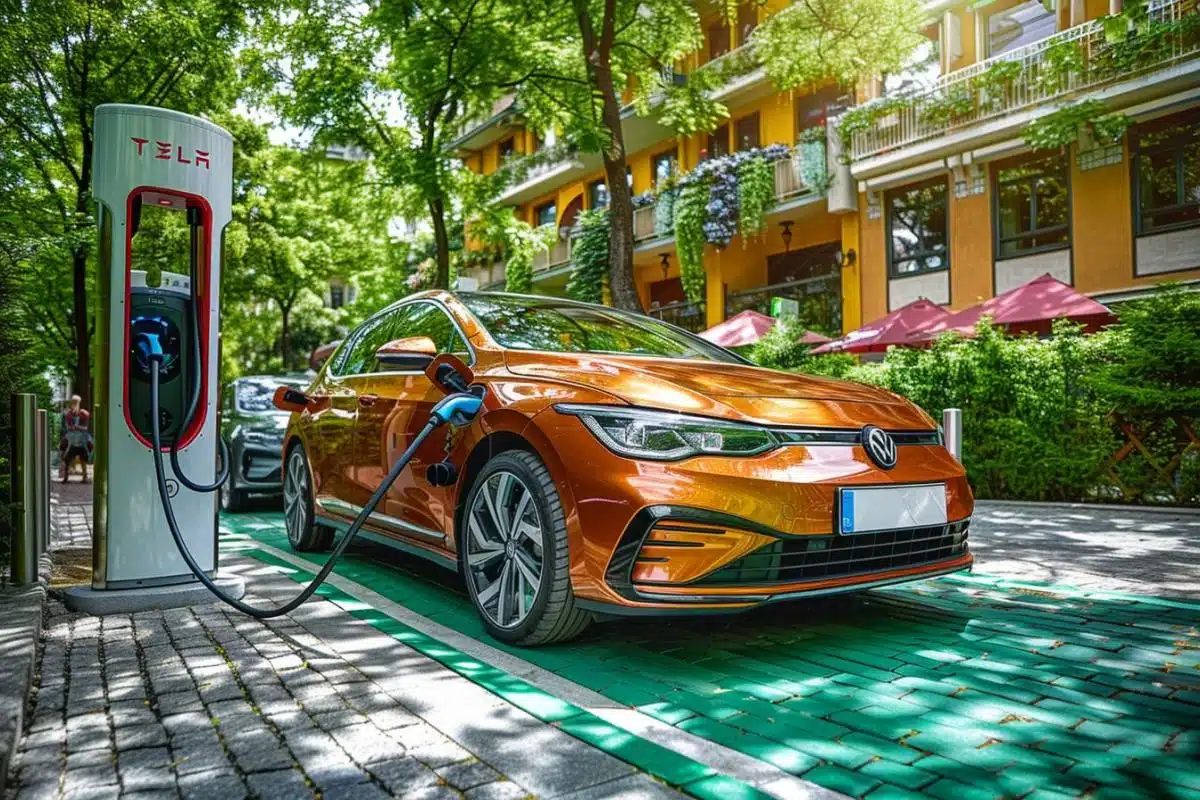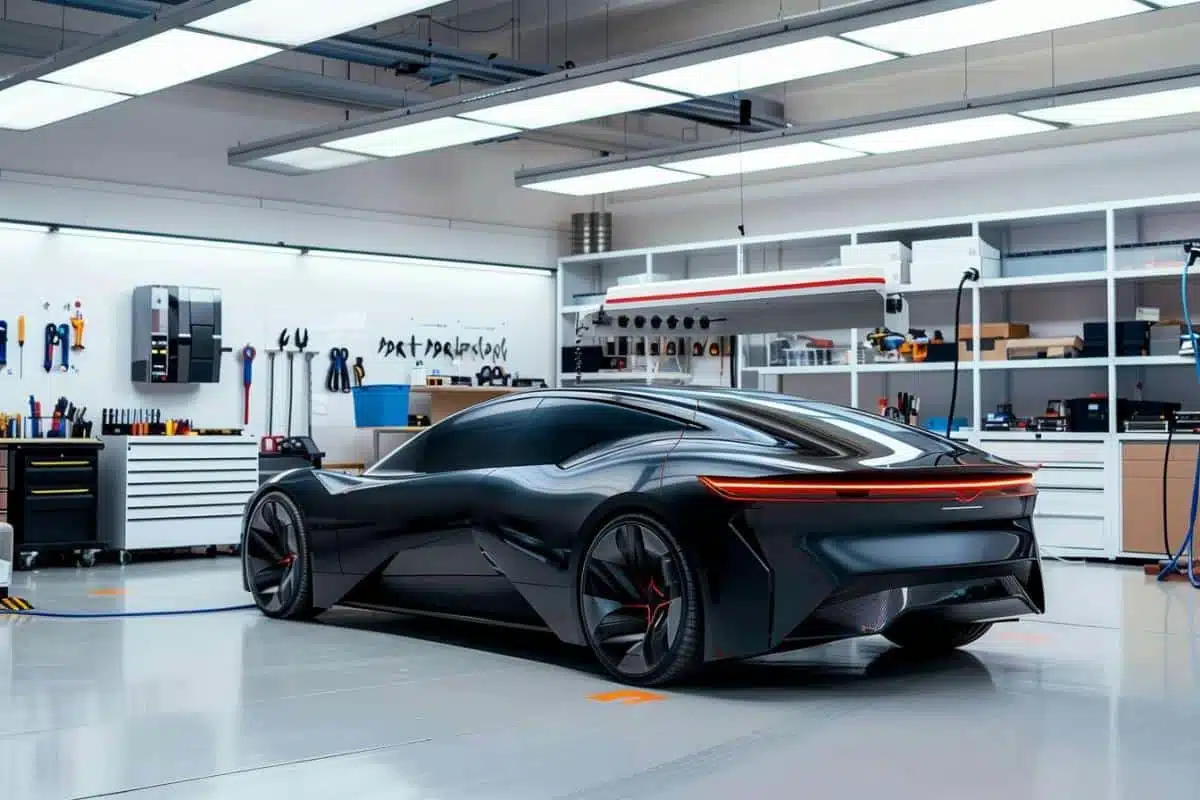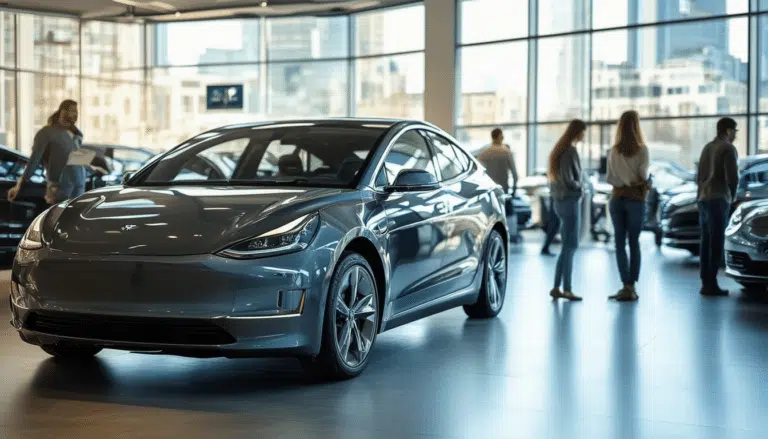Atención : Do you know the hidden dangers of electric cars? The truth will surprise you

Electric cars have revolutionized the automotive world in recent years. However, like everything in life, they have their advantages and disadvantages. Throughout this article, we will explore these aspects in detail to help you better understand this technology and its impact on daily life.
SUMMARY:
| main ideas | details |
|---|---|
| 🌱 Less pollution | Not emitting pollutant gases or greenhouse gases |
| 🔊 Noise reduction | Decrease ambient noise and stress levels in urban areas |
| 💸 Savings on maintenance | Reduce the possibility of breakdowns and repair costs |
| ⚡ Energy efficiency | Utilize up to 90% of the energy stored in the battery |
Advantages of electric cars
Electric cars offer a number of benefits for both drivers and the environment. Some of these advantages stand out for their positive impact on the economy and sustainability.
Lower air pollution
One of the main advantages of electric cars is that they do not produce emissions of pollutant gases or greenhouse gases. This makes them an ideal option for urban areas, where environmental regulations are becoming increasingly strict. They significantly contribute to reducing air pollution in cities, improving quality of life and public health.
Lower noise pollution
In addition to being cleaner, electric cars are also considerably quieter than internal combustion vehicles. This reduction in ambient noise can enhance the quality of life in urban areas, decreasing noise pollution and stress levels of residents.
Savings on maintenance
Electric cars have fewer mechanical components than traditional cars, which reduces the possibility of breakdowns and, therefore, the cost of repairs. For instance, they do not require oil changes, and the need for brake maintenance decreases thanks to regenerative braking, which uses the electric motor to brake the vehicle and recharge the battery at the same time.
Energy efficiency
An electric car converts about 90% of the energy stored in its battery into motion, compared to 20-30% of an internal combustion engine. This level of energy efficiency leads to better resource utilization and less dependence on fossil fuels.
Lower operating cost
Using electricity instead of fossil fuels results in a significant reduction in the cost per kilometer traveled. This translates into a considerable savings for owners in the long term, added to the various grants and subsidies available to encourage the adoption of this technology.
Tax benefits
Many governments and local administrations offer tax benefits to electric car owners. These benefits can include everything from deductions on purchases to exemptions on tolls and parking fees in certain cities.
Unrestricted access to low-emission zones
In many cities, electric cars have environmental labels that allow them to circulate and park in low-emission areas, restricted to internal combustion vehicles. This advantage facilitates mobility and parking in central and heavily trafficked areas.
Additional space
The absence of bulky mechanical elements like the engine and gearbox in electric cars allows for better utilization of interior and storage space. This results in vehicles with more space for the driver and passengers, as well as greater trunk capacity.
Disadvantages of electric cars
Despite their numerous advantages, electric cars also present certain drawbacks that are important to consider before making a purchase decision. Below, we highlight the main disadvantages of these vehicles.
Limited range
The range of an electric car depends on the capacity of its battery and can generally vary between 150 and 450 kilometers on a single charge. This limitation in range can be a problem for long trips, where charging stations might not be as common as traditional gas stations.
In terms of numbers, while range has significantly improved in recent years, it still lags behind what internal combustion cars offer. In 2024, this remains one of the main challenges for manufacturers and potential buyers.
Insufficient charging infrastructure
Despite the increase in demand, charging infrastructure has not grown at the same pace as the adoption of electric cars. In many regions, there are still few charging points compared to traditional service stations. This can make planning long trips and operating electric cars in certain areas difficult.
Charging time
Recharging an electric car can take more time than refueling an internal combustion car. Fast charges can take between 15 and 30 minutes, while regular charges can take several hours. For those who need to use their vehicle intensively, this wait time can be a considerable inconvenience.
High price
The initial price of electric cars is usually higher than that of internal combustion vehicles. This is mainly due to the high cost of batteries, which represent a significant part of the total price of the vehicle. Although there are grants and subsidies available, the cost can be a deterrent for many potential buyers.
Lower power
Electric cars generally do not reach the same power as conventional engines, although this is being improved with technological advancements. However, for those seeking sports performance, electric cars may not yet meet their expectations.
Battery issues in cold climates
Low temperatures can negatively affect the performance and range of batteries. This is especially relevant in regions with severe winters, where electric cars may experience significant reductions in their range and performance during the coldest months of the year.
Few specialized workshops
There are still fewer workshops trained to repair electric cars compared to those dedicated to internal combustion vehicles. This can make repairs more complicated and costly, as finding a specialized workshop can be a challenge in some areas.
Main keys to transitioning to an electric car
If you are considering making the transition to an electric car, it is essential to take into account various practical aspects that will help you make an informed decision.
Long-term cost
Although the initial price of an electric car is higher, the savings on operation and maintenance costs can offset this difference in the long run. Lower costs for fuel and maintenance can result in significant savings over the vehicle’s lifespan.
Indirect environmental impact
It is important to consider the environmental impact of the electricity production needed to recharge the batteries. The carbon footprint of an electric car can vary depending on how electricity is generated in your region. If it comes from renewable sources, the impact will be lower; however, if it is based on fossil fuels, the environmental benefit could be reduced.
For a more detailed analysis of the advantages and challenges of electric and gasoline cars, you can consult specialized articles that compare both types of vehicles.
Parking benefits
In many cities, electric cars enjoy benefits such as free or discounted parking in regulated parking areas. This type of incentive can be a determining factor when choosing an electric car, especially if you live in an area with parking issues.
So, is it worth buying an electric car ?
In 2024, the decision to acquire an electric car depends on various personal and contextual factors. However, its growing popularity and technological advancements are making this option increasingly attractive to a wider customer base, including those passionate about mechanics and design, like me, Jérôme, 37 years old.
The introduction of emerging technologies, such as Artificial Intelligence in electric vehicles, is improving performance and driving experience, making electric cars a more viable and efficient option.
Although electric cars have drawbacks like limited range and insufficient charging infrastructure, their benefits in terms of energy efficiency, lower pollution, and savings on operational costs in the long term are aspects that cannot be ignored.
Finally, to keep up with the latest market developments and make an informed decision, I recommend checking recent advances and model comparisons in articles like the increase in demand for electric vehicles in Europe or the best electric cars in Spain and Mexico.
In conclusion, deciding to acquire an electric car involves weighing both advantages and disadvantages, but with the right information, you can make a choice that suits your needs and lifestyle.
| Aspect | Advantages | Disadvantages |
|---|---|---|
| Pollution | Lower air and noise pollution | Electricity production may generate emissions |
| Maintenance | Fewer breakdowns and repair costs | Few specialized workshops |
| Cost | Lower operating cost and tax benefits | High initial price |
| Range | No restrictions in low-emission zones | Limited range and long charging time |







